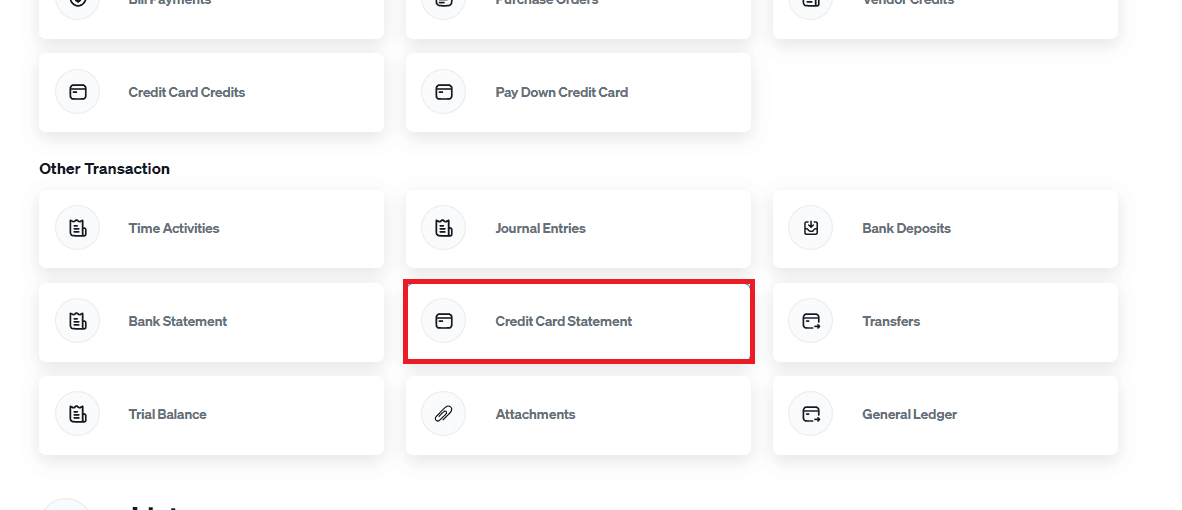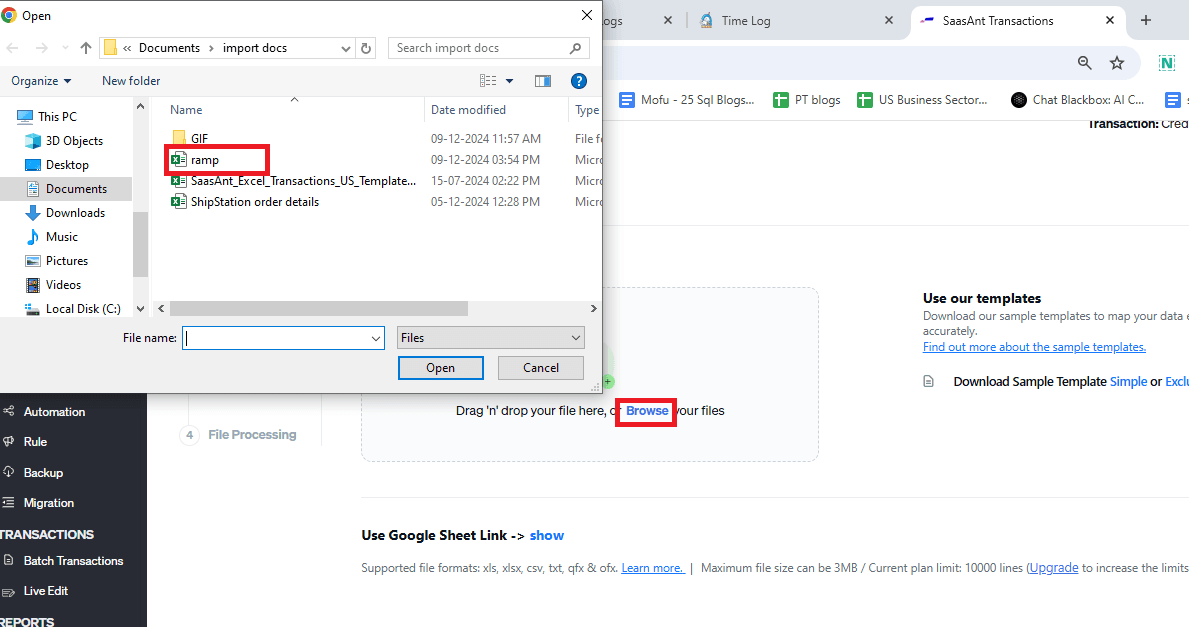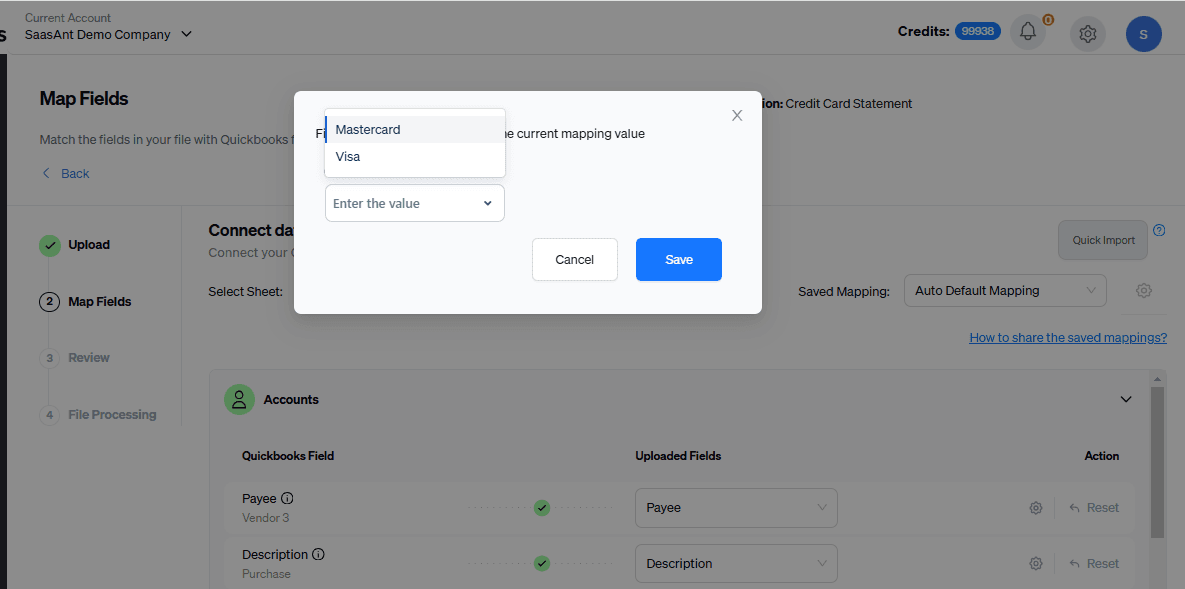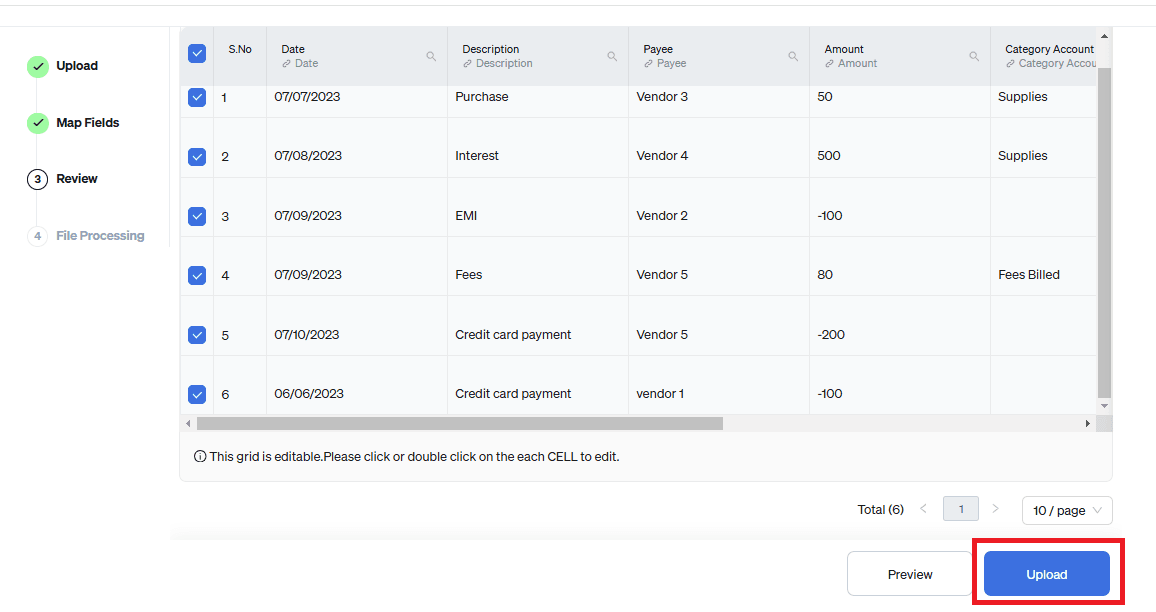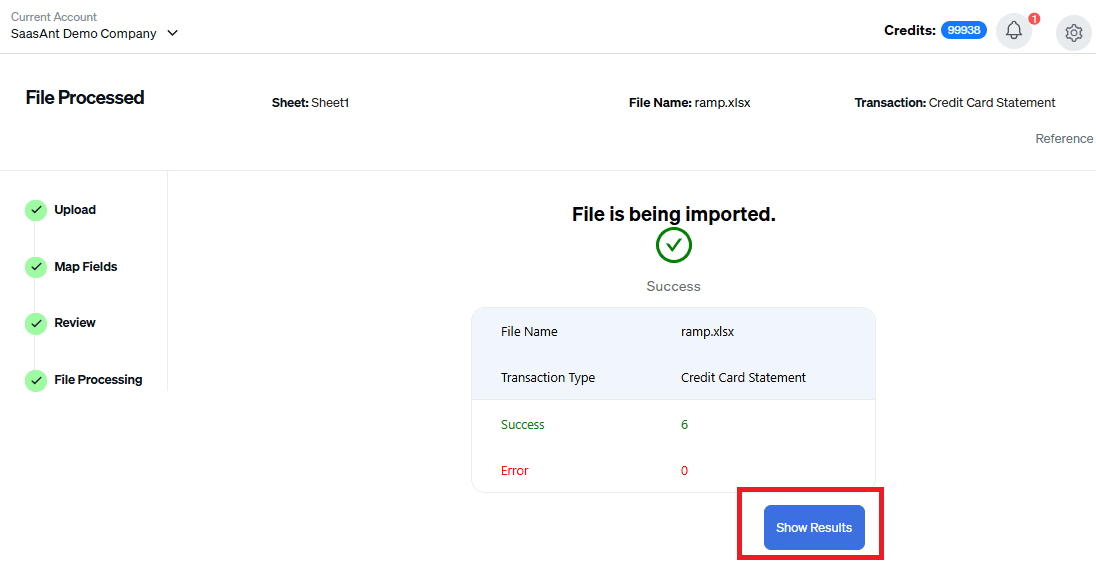How to Import Credit Card Statements into QuickBooks
You could be looking for a way to import credit card statement to QuickBooks Online for simplified reconciliation or to generate accurate financial reports that reflect all aspects of your business, including credit card expenditures.
But the problem is there isn’t a native feature in QuickBooks that allows you to import credit card statement to QuickBooks Online. Luckily, we have a CPA-recommended solution for that, which is SaasAnt Transactions. SaasAnt has got 4.9 rating in the QuickBooks app store and lets you import credit card statements to QuickBooks Online from file formats such as XLS, XLSX, CSV, IIF, or PDF.
This blog will walk you through how to import credit card statements into QuickBooks Online easily with SaasAnt Transactions.
Import Credit Card Statement To QuickBooks Online: Quick Instructions
You can get started with a 30-day free trial immediately.
Integrate SaasAnt Transactions from the QuickBooks app store.
Upload the file (XLS, XLSX, CSV, IIF, or PDF)
Review and Import.
Rollback (undo) if needed.
How to Import Credit Card Statement To QuickBooks Online Using SaasAnt Transactions
Step 1: Connect with SaasAnt Transactions
Find SaasAnt Transactions in the QuickBooks App Store and connect it to your QuickBooks account. This certified, secure app keeps your data safe and well-managed.
Step 2: Access the SaasAnt Transactions Dashboard
SaasAnt Transactions Dashboard -> “New Import” -> "Credit Card Statement." This will direct you to the Upload Files page, where you can download the sample file template.
Step 3: Upload the File
Upload the credit card statement file. You can upload any file format, such as XlS, XLSX, CSV, IIF or PDF. You can also enter the Google Sheet link.
Note: To make this step more manageable, you can download the SaasAnt Transactions template from the right side of the screen.
Step 4: Mapping
Mapping matches the file headers to the QuickBooks fields.
Note: For the Credit Card Account field, select either Mastercard or Visa. For the Bank Account field, choose checking or savings. The mandatory fields for processing are Bank Account, Category Account, and Credit Card Account.
Step 5: Reviewing Your Data Before Final Import
Review the data mapped to avoid mistakes and ensure the accurate alignment of all details. SaasAnt Transactions facilitates data review and corrections, helping you identify and resolve errors. Upon confirming the data accuracy, click ‘Upload’ to import your file into QuickBooks Online.
Step 6: Verifying the Imported Transactions
Upon successful import, the imported credit card statements will appear with their reference number. Click on the reference number to verify whether that transaction has been uploaded into QuickBooks. You can also roll back (undo) the imported data if needed.
SaasAnt Transactions comes with innovative error resolution tools that help you if you encounter any issues. If there are errors, it’ll suggest ways to fix them, making the whole process effortless.
Make It Even Easier with Automation
If you want to simplify the import process even further, consider automating the bulk upload of your financial statements. With SaasAnt Transactions, you can automate this task using Email, FTP/SFTP, or Zapier. This approach can save time and reduce manual effort, making your workflow more efficient.
Related Reading: Here’s a detailed article on Email, FTP/SFTP, or Zapier automation.
Import Credit Card Statement To QuickBooks Online Today With SaasAnt Transactions
We've discussed all the essentials on how to import credit card statement to QuickBooks Online with SaasAnt Transactions. This effective application overcomes QuickBooks' challenges with bulk data imports, providing a quick, error-free, and time-saving solution. Plus, you can start immediately with a 30-day free trial, and there's no need to enter credit card information. If you are facing any trouble, you can always drop an email at support@saasant.com.
Related reading:
How to Categorize Credit Card Payments in QuickBooks
s Online
FAQ
How do I upload a credit card statement to QuickBooks?
To upload credit card statements to QuickBooks, integrate SaasAnt Transactions. Go to its dashboard -> import -> credit card statements -> upload the file (XLS, XLSX, CSV, IIF, or PDF) -> map the file headers to QuickBooks fields -> import.
How to export credit card statement to QuickBooks Online?
To export credit card statements from QuickBooks Online, integrate SaasAnt Transactions. Go to the dashboard, select "Export," then "Credit Card Statements." Choose a credit card statement from the dropdown, filter by creation date, transaction date, or last updated date, and select a date range. Download the list in CSV or XLS format.
How to enter credit card statements in QuickBooks Online?
To enter credit card statements in QuickBooks Online, integrate SaasAnt Transactions. Go to its dashboard -> import -> credit card statements -> upload the file (XLS, XLSX, CSV, IIF, or PDF) -> map the file headers to QuickBooks fields -> import.
Can you upload statements to QuickBooks Online?
Yes, you can upload statements to QuickBooks Online using SaasAnt Transactions. Go to its dashboard -> import -> credit card statements -> upload the file (XLS, XLSX, CSV, IIF, or PDF) -> map the file headers to QuickBooks fields -> import.
